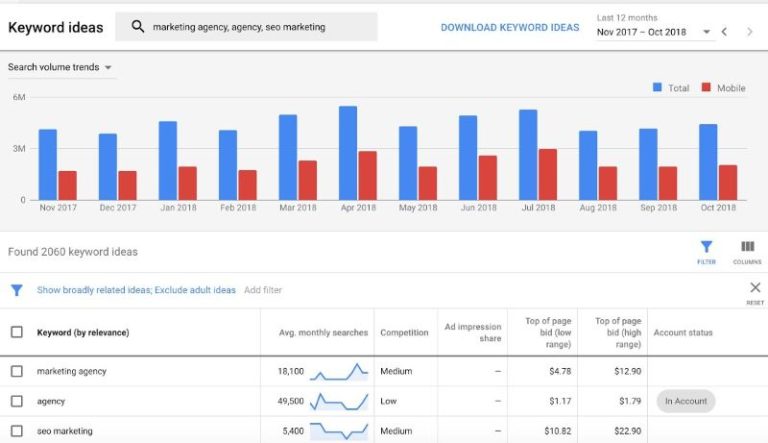

The road that stretches before the gig economy is not merely economic; it is moral and political. What kind of society accepts dependence as freedom, or rebrands insecurity as opportunity?

By Matthew A. McIntosh
Public Historian
Brewminate
Introduction
In a world where soaring app-store icons promised freedom, independence and entrepreneurial spirit, the rise of gig work has come to feel strangely familiar. Platforms boast about self-sufficient “gigsters” choosing their hours, yet behind the interface sits a reality of algorithmic supervision, rating-systems and fluctuating income. Recent research argues gig workers are not independent contractors but rather modern-day feudal serfs tethered to digital lords who own the infrastructure and the data.
At the heart of the matter is this paradox: freedom of work is heralded as progress, yet dependence on corporate-controlled platforms deepens. Workers may choose when they log-on, but they often cannot negotiate pay, challenge opaque rules or build equity in the systems they power. As major platforms expand globally, the analogy to medieval feudalism (lords owning land, serfs farming it under obligation) resurfaces in a new guise: land is replaced by apps, data and logistics, and workers rent access while the rent-collector remains invisible but omnipotent.
Understanding this shift matters now. The gig economy has expanded rapidly, captive to tech-platform logic and policy gaps. As more people work on these terms, questions emerge: are these new models genuinely liberating or simply reworking old hierarchies for the digital age? What follows charts that evolution from the rhetoric of freedom to the reality of dependence and examines the stakes for workers, platforms and society as a whole.
Digital Feudalism Defined
The term “digital feudalism” captures a growing sense that today’s gig economy has revived medieval hierarchies beneath the language of innovation. In traditional feudal systems, land defined power: those who owned it ruled, while those who worked it survived by permission. In the modern platform economy, that “land” has become digital — apps, algorithms, and the data that flows through them. The companies that control these systems hold the same structural advantage as lords once did: they grant workers conditional access to the means of earning a living.
Gig workers often lack autonomy over price, work conditions, and client relations despite being labeled “self-employed.” They rent access to platforms like Uber, DoorDash, or Instacart the same way medieval serfs rented fields, surrendering a portion of their labor’s value to the gatekeepers. The illusion of independence conceals a form of economic dependency where power rests entirely with those who own the digital infrastructure.
This structure is reinforced by algorithms that determine who receives work, how much they are paid, and when they are penalized. The algorithm functions as a silent overseer — opaque, automated, and immune to negotiation. Scholars at Lund University describe it as “algorithmic management,” where control is exercised without human supervision but with relentless precision. Gig workers cannot appeal to human managers because the system itself is the manager. The digital hierarchy thus reproduces the same asymmetry of power that once defined feudal life: dependency masked as liberty, participation mistaken for ownership.
Dependency Disguised as Freedom
The central promise of the gig economy, flexibility, has become its most effective disguise. On the surface, workers can choose their hours, select jobs, and avoid the rigidity of traditional employment. Yet beneath this appearance lies a growing reliance on corporate-controlled systems that dictate the terms of survival. Companies like Uber, DoorDash, and Lyft refer to their workers as “partners,” but partnership implies shared power, not submission to algorithmic directives. Workers remain subject to dynamic pricing, sudden deactivations, and shifting terms of service that can change without notice. The rhetoric of autonomy becomes a marketing slogan for a system built on precarity.
Gig workers operate within a digital structure of control that mimics employment without granting its protections. They must perform continuous “availability labor,” staying logged in and ready even when demand is low, because rejection rates and inactivity can penalize their algorithmic standing. Ratings and customer feedback act as instruments of discipline, creating a culture of self-surveillance where workers internalize corporate expectations to remain competitive. This inversion of power, where the monitored come to monitor themselves, transforms economic flexibility into a form of psychological dependency.
The United States and China are constructing parallel forms of digital neo-feudalism. In both models, massive data extraction systems turn human behavior into monetized productivity, while workers compete for algorithmic favor rather than stable compensation. The platform replaces the marketplace, and competition occurs not through skill or innovation but through constant compliance with invisible criteria. The more workers conform to algorithmic logic, the more tightly the system binds them.
This dependency also reshapes class consciousness. Where industrial workers once identified collectively as labor, gig workers are atomized as “independent contractors.” They bear all the costs (maintenance, fuel, insurance) while corporations reap the profits. The illusion of self-employment conceals a deeper truth: control has shifted from the visible foreman to the invisible algorithm, and freedom itself has become the product being sold.
The Productivity Trap and Global Parallels
The modern gig economy thrives on the promise of meritocracy: work harder, earn more. Yet this simple formula conceals a structural trap. Productivity in the gig model no longer measures output alone; it measures obedience to algorithmic efficiency. The more workers conform to the app’s rhythm, the more likely they are to be rewarded, but those rewards are variable, unpredictable, and easily withdrawn. Digital labor systems in both the United States and China transform efficiency into control. Workers become data points in a machine that values constant motion over genuine economic progress.
This “productivity trap” sustains itself through gamification. Workers are lured by incentives, streak bonuses, and surge pricing, temporary boosts designed to encourage longer hours and higher availability. These tools mirror medieval corvée labor, where peasants performed unpaid tasks for lords to maintain access to land. In today’s gig world, the land is the platform, and the labor extracted is measured in clicks, rides, or deliveries. Scholars describe this as a feedback economy, where workers chase rewards set by the very systems that exploit their persistence.
Globally, the pattern repeats across borders. In China, platforms like Meituan and Didi Chuxing use algorithmic penalties to enforce delivery quotas, while in the United States, workers for DoorDash or Instacart face deactivation if their customer ratings dip below thresholds. Both economies celebrate innovation but rely on the same feudal logic: dependence on centralized platforms that claim ownership of digital infrastructure and personal data alike. The scale may differ, but the structure remains the same—an empire of code governed by a few corporate lords.
The spread of these models exposes a deeper ideological export. The gig economy is often presented as a symbol of technological progress, yet its architecture reinforces centuries-old hierarchies under new branding. The notion of “entrepreneurial freedom” is deployed globally to justify deregulation and the erosion of labor protections. In this sense, the gig economy becomes a vessel for neoliberal empire, extending Western corporate influence through the promise of digital opportunity. What it delivers instead is dependency, an empire where freedom itself becomes a form of control.
Still, resistance stirs. Across continents, gig workers have begun to organize through grassroots unions and online collectives, demanding transparency in pay structures and accountability from algorithmic systems. These movements, though fragmented, echo the first uprisings of medieval serfs who sought to reclaim dignity from hereditary power. Whether this new struggle can dismantle digital feudalism or merely reform its terms remains uncertain, but the challenge has been issued, and it grows louder with every delivery completed and every fare denied.
From Gig to Guild: Alternative Visions
If the gig economy mirrors feudalism, then its antidote may lie in a return to something older than industrial capitalism, the medieval guild. In contrast to feudal dependency, guilds were collectives of skilled workers who governed their own labor, set quality standards, and protected mutual welfare. In the digital age, that model is re-emerging as a blueprint for cooperative platforms where workers, not corporations, own the means of exchange. John Hagel a long-time management consultant in Silicon Valley, argues, the shift from “gig” to “guild” would replace competition with collaboration and reframe innovation as a shared endeavor rather than a race for survival.
Several experiments are already testing this idea. Worker-owned cooperatives like Up & Go in New York allow cleaners to keep 95% of their earnings by collectively managing the platform, while Fairbnb redirects booking fees into community projects instead of corporate profits. These ventures show that platform technology itself is not inherently exploitative; it becomes so only when ownership is centralized. When workers share governance, the digital commons becomes an engine of empowerment rather than dependency.
The challenge, however, is scale. Corporate platforms dominate through vast networks of data and capital, while cooperatives operate at the margins, often constrained by limited funding and visibility. Without structural support, these alternatives risk being absorbed or outcompeted by the very giants they seek to challenge. Regulation could bridge that gap through policies that favor worker-owned startups, enforce data transparency, and treat algorithms as public infrastructure rather than private property. The question is whether governments, often intertwined with corporate lobbying, will choose to level the field or defend the lords of the digital manor.
The emerging guild model suggests a broader philosophical shift: that freedom is not the absence of structure, but the presence of shared power. When ownership is distributed, accountability follows naturally; when it is hoarded, dependence takes root. The future of work may depend on whether society can move from platforms that extract to communities that cultivate, from digital serfdom to a new form of collective stewardship.
The Road Ahead: Freedom or Fealty?
The road that stretches before the gig economy is not merely economic; it is moral and political. What kind of society accepts dependence as freedom, or rebrands insecurity as opportunity? The question now facing policymakers and citizens alike is whether the future of labor will remain an extension of corporate hierarchy or evolve toward shared digital sovereignty. As the University of Bath’s Institute for Policy Research notes, this tension defines our era: the promise of innovation colliding with the erosion of rights. Policymakers debate whether to regulate platforms as employers or recognize new categories of labor—but the core issue runs deeper than classification. It concerns ownership itself.
Some governments are beginning to respond. The European Union has moved toward requiring transparency in algorithmic decision-making and reclassifying some gig workers as employees. In the United States, cities like Seattle and New York have enacted minimum pay standards and limited deactivation without cause. Yet these measures remain piecemeal, addressing symptoms without confronting the structural disease: that digital infrastructure has become the new land, privately held and profit-driven. Until that reality changes, workers will continue to labor on someone else’s domain, their independence constrained by invisible code.
Still, the future is not predetermined. The rise of cooperative platforms, open-source development, and public debate over algorithmic fairness signal an emerging awareness that the digital economy can be otherwise. If data is the new oil, then its wells should be communally managed, not monopolized. Reclaiming the digital commons would mean building systems where workers participate in governance, where the terms of algorithmic labor are visible and contestable, and where dignity is not contingent upon five-star ratings.
In the end, the question is one of ownership and imagination. Feudalism once fell when people began to see land not as divine inheritance but as common trust. The digital age demands the same awakening. We can continue down the path of convenience, renting access to corporate kingdoms that promise freedom but sell fealty, or we can build a networked world where labor and liberty are no longer at odds. The technology is ready. The choice, as always, belongs to those willing to claim it.
Originally published by Brewminate, 10.29.2025, under the terms of a Creative Commons Attribution-NonCommercial-NoDerivatives 4.0 International license.


